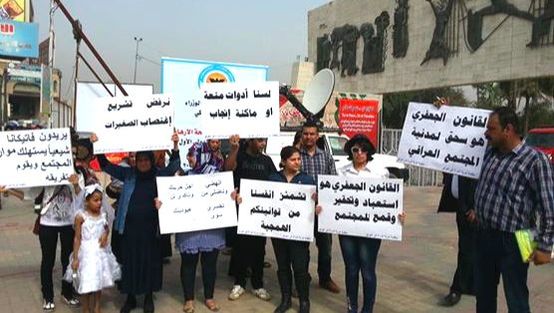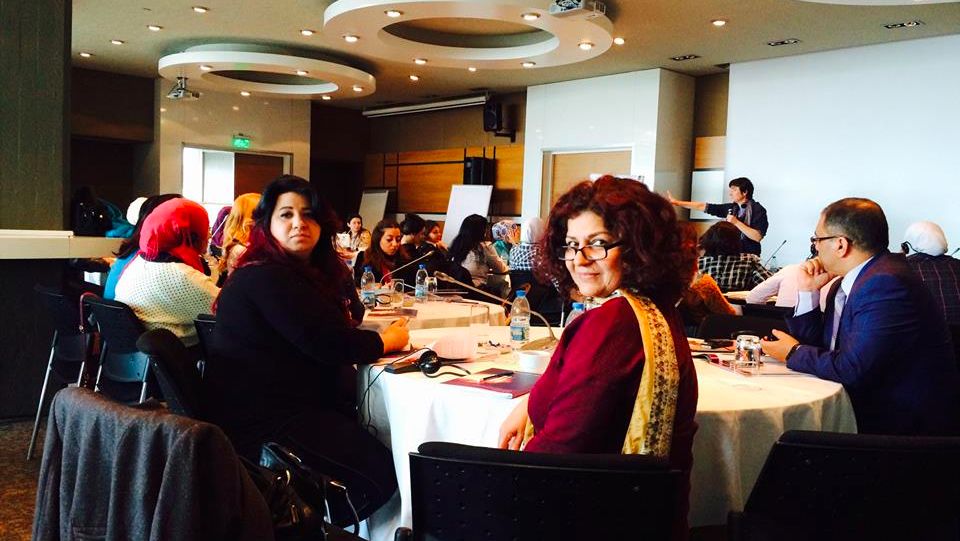|
Legislative Reform
OWFI’s approach to reforming governance is based on a philosophy of empowering women against patriarchal abuse and control, starting with the most basic human right which is the Right-to-Life, to be followed by right to safety, dignity, and life choices (self-determination). A core focus of our work has been and will increasingly be on advocating for legislation and government practices that protect women and criminalize violence against them. For the past five years OWFI has held meetings with officials in the Ministry of Interior, Women’s Empowerment Directorate, and many Iraqi Parliamentary committees to discuss much needed changes to the legal, policy and practice landscape for women’s issues in Iraq. We have also had meetings with UN officials and other international bodies in which we are usually invited to speak from our expertise on women’s issues in the country. OWFI has a solid history of pushing for uncompromising feminist actions in the legal landscape. We played a key role in leading civil society organizations that wrote the initial draft of Iraq's National Action Plan 1325 for implementation of the United Nation Security Council resolution 1325 on Women, Peace And Security. We advocated strongly in these meetings for the plan to include the necessary legal and structural components to support greater adoption of sensitive and rights-based sheltering across Iraq, in addition to repealing articles which sanction honour killing. |
OWFI is committed to legislative reform in Iraq
|
Sheltering and the Law
The sheltering work we do is not legal in Iraq. We open and run these shelters in a legislative vacuum that neither allows us legal recognition of these shelters, nor any security protection from the state. More than 70 percent of the women who needed our protection did not have any identification papers to prove who they are. Iraqi governmental policy regarding issuing identification papers for women require that a male relative shows up during the process, or shares his original identification documents, thus making it impossible for women escaping ‘honour killing’ to get original papers, or replacement for the paper to which she no longer has access. Although the laws grant Iraqi citizens nationality, policies make it extremely hard for women to get the papers in the lack of a male relative. Therefore legislative change is an important component of our work. |
Domestic Abuse and the Law
Women have no institutional protection from family violence to fall upon in times of need. The penal code addresses sexual assault in the article 398, stating that the charges will be dropped if the rapist marries the woman survivor, nevertheless it does not address domestic violence. On the contrary, article 41 in the penal code allows a husband to “discipline his wife as allowed in religion or norms”. In 2015 the women’s committee in the Iraqi parliament had proposed a very problematic Family Protection Act for the protection of women from domestic abuse. OWFI activists met with staff of the United Nations Assistance Mission for Iraq (UNAMI) to share our critique of and suggested amendments to the proposed new Family Protection Law. UNAMI promised to advocate for Parliament to make these important amendments, however the Iraqi Parliament drafted this legislation behind closed doors, without consulting Iraqi feminist organizations on the ground. |
Marriage and the Law
Recently proposed amendments to the 1959 Personal Status Code in Iraq took a second reading in Parliament and seem to be well underway of approval. These amendments would legalize underage marriage for girls as young as nine years and compromise the legal protection of women from polygamy and endanger children. OWFI’s campaign against these amendments has been central in the mobilization on the ground calling and demanding the protection of the existing rights of Iraqi women and girls, and for legal and political reforms that improve their lives. |





